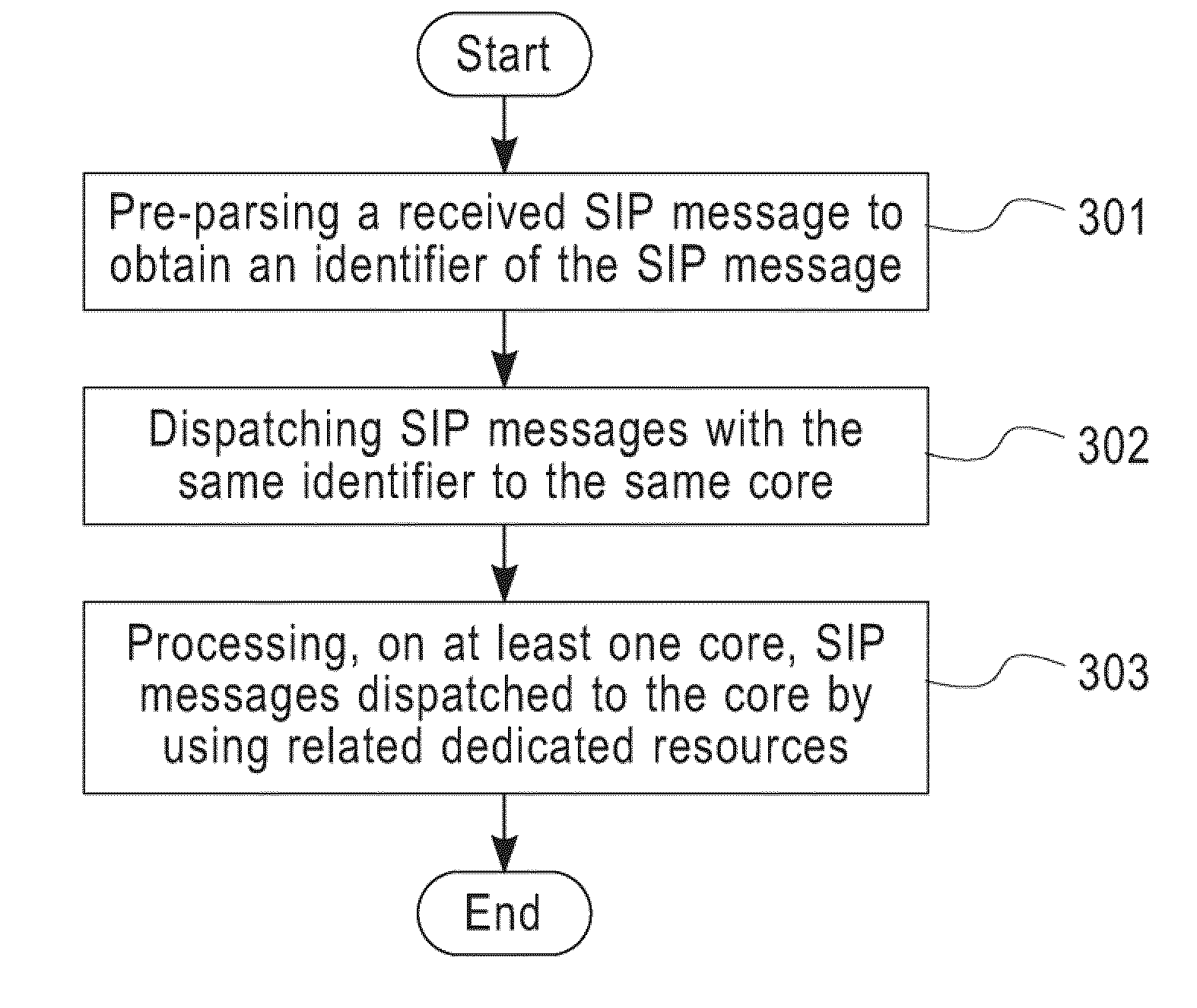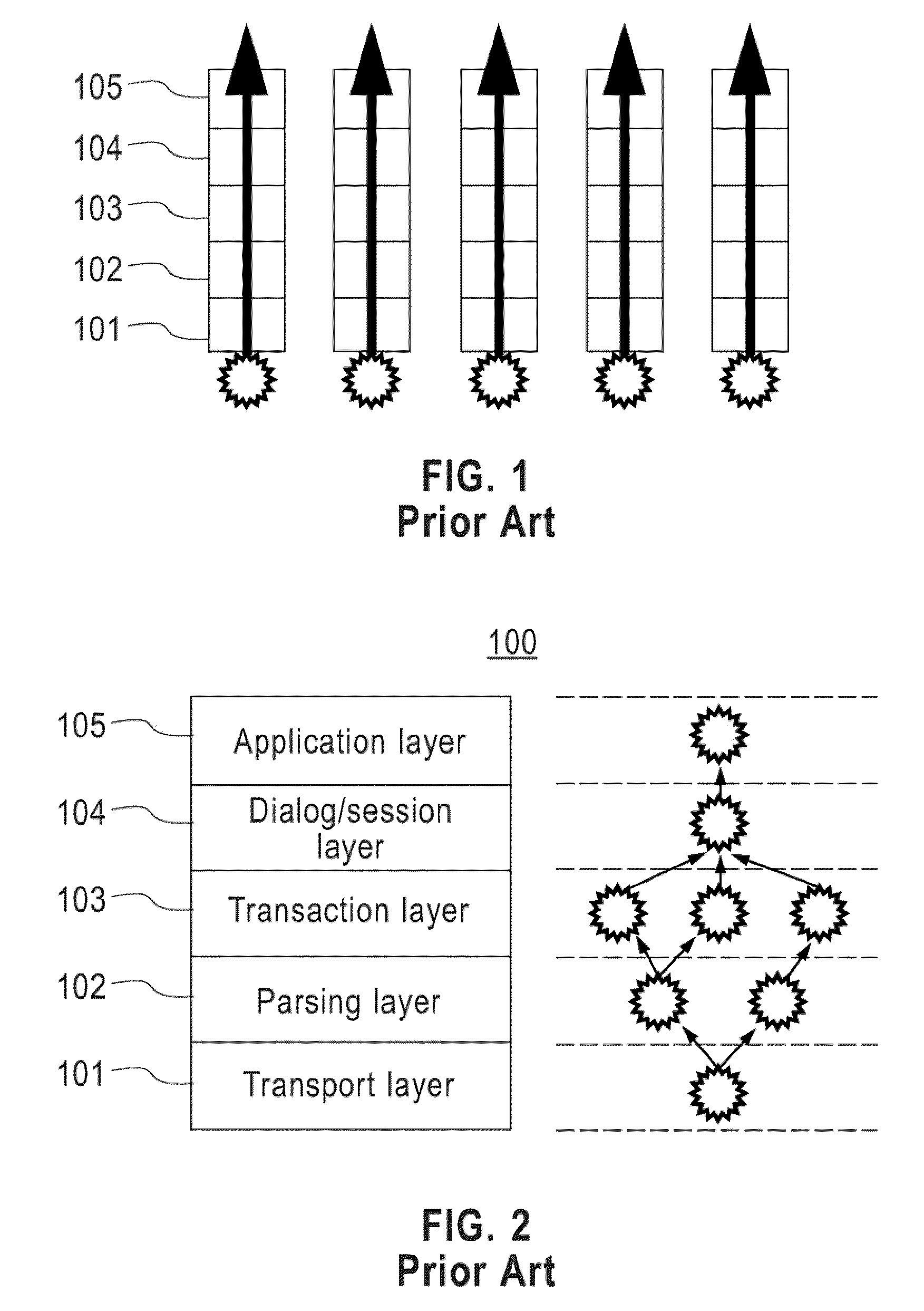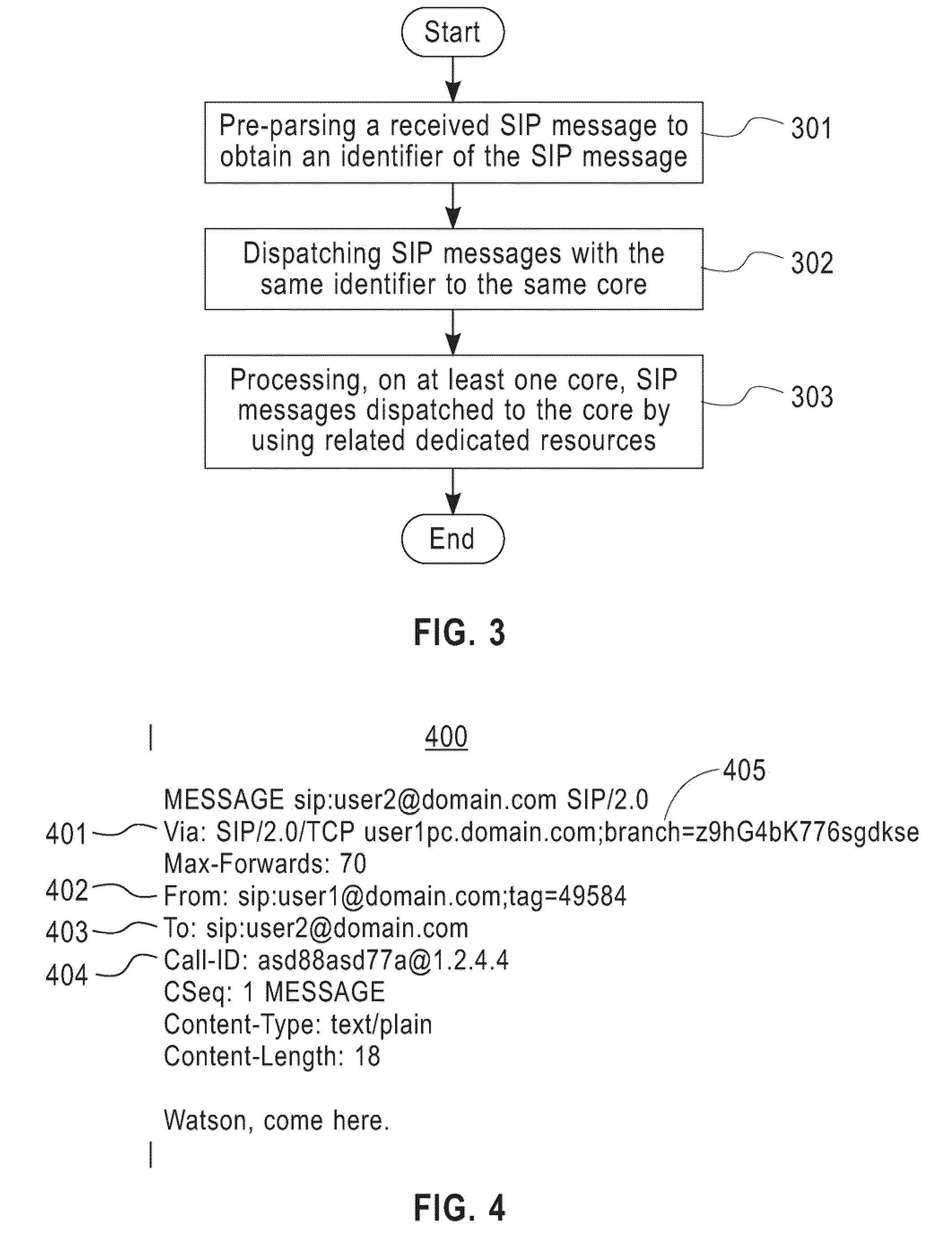Processing SIP messages based on multiple cores
a message processing and core technology, applied in the field of multicore technology, can solve the problems of inability to meet the requirements of the ngn, resource contention, and ineffective improvement of overall server performance, and achieve the effects of reducing resource contention, reducing resource contention, and reducing resource contention among respective hardware threads
- Summary
- Abstract
- Description
- Claims
- Application Information
AI Technical Summary
Benefits of technology
Problems solved by technology
Method used
Image
Examples
Embodiment Construction
[0025]Hereinafter, description will be given to a method and an apparatus of processing SIP messages based on multiple cores with reference to the accompanying drawings and in terms of embodiments.
[0026]Referring to FIG. 3, description will be given to a method of processing SIP messages of the present invention. FIG. 3 illustrates a flowchart of a method of processing SIP messages based on multiple cores according to an embodiment of the present invention.
[0027]In step 301, a received SIP message is pre-parsed in order to obtain an identifier of the SIP message. Usually, SIP messages may be transmitted through a user datagram protocol (UDP) or a transmission control protocol (TCP) for example. The received SIP message is often cached in a queue. When it is time to process the SIP message, the SIP message is retrieved from the queue. Then, the SIP message is pre-parsed to obtain the identifier of the SIP message. The identifier of the SIP message may be used to identify the correlat...
PUM
 Login to View More
Login to View More Abstract
Description
Claims
Application Information
 Login to View More
Login to View More - R&D
- Intellectual Property
- Life Sciences
- Materials
- Tech Scout
- Unparalleled Data Quality
- Higher Quality Content
- 60% Fewer Hallucinations
Browse by: Latest US Patents, China's latest patents, Technical Efficacy Thesaurus, Application Domain, Technology Topic, Popular Technical Reports.
© 2025 PatSnap. All rights reserved.Legal|Privacy policy|Modern Slavery Act Transparency Statement|Sitemap|About US| Contact US: help@patsnap.com



